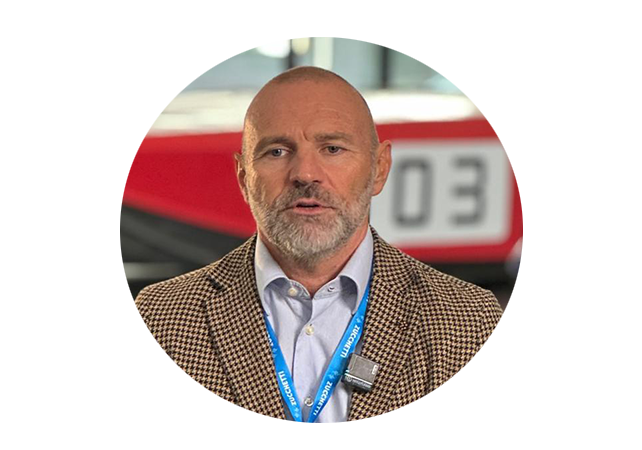News
The digitalisation of logistics and transport: an urgent necessity for Italian industry

In 2023 and 2024, the Italian manufacturing sector demonstrated a range of performance levels across different industrial sectors.
Italy has outperformed other Eurozone countries, benefiting from both domestic demand and exports. In contrast, Germany is experiencing a recessionary downturn in its industrial sector, which is facing intense global competition from China and the United States, which, in turn, are witnessing steady growth.
It is anticipated that Italian companies will experience a decline in domestic demand within the Eurozone soon. This is due to the German recession and the continued imposition of trade sanctions on Russia following the invasion of Ukraine.
The positive dynamics of exports to China, which showed strong increases in value (+16.8%) and volume (+9.0%), remain unchanged despite the current uncertain international political climate.
How to respond to the so-called
"black swans" ?
In a world that is moving twice as fast as it did in the past, the so-called “black swans” i.e. those rare, unforeseen events that cause major effects, e.g. the pandemic caused by the new coronavirus, the war in Ukraine, the war in Israel, etc., have also multiplied in the last five years. They are having a disruptive impact on global supply chain management, resulting in increased costs for raw materials, transportation and energy.
In such a complex context, factories require solutions that facilitate:
- interconnection between the company and its suppliers, transporters, distributors and customers,
- a “systemic” approach to analysing processes,
- a shift from a “mechanical” to an “organic” view of the company, i.e. the company is no longer understood as the simple sum of its individual parts and functions, but the company is strongly interdependent on the context in which it operates.
Where should investments be directed to enhance competitiveness and recover margins?
Digitalisation is the main tool that will enable companies to maintain their competitive edge in the market, as Italy still has significant scope for improvement.
The DESI - Digital Economy and Society Index - acknowledges the investments made in recent years thanks to Industry 4.0 and its derivatives. However, it also notes that Italy is weak in terms of data analysis, used by only 26.6% of companies, compared to the European average of 33.2% (17th position in comparison with other Member States). Only 5% of companies are currently utilising artificial intelligence, which is significantly below the 2030 targets set for the EU as a whole (8% compared to 60% for Italy and 75% for the EU).
One of the main areas for improvement in our country is digital skills: Currently, only 45.8% of people in Italy have at least a basic level of digital proficiency, which is below the EU average of 55.6% and ranks us 23rd among Member States.
Despite significant investments in digitisation of production, companies in the manufacturing sector can enhance efficiency and profit margins by digitising logistics and transport. These are two business processes where digital maturity is below European standards.
Which levers to focus on to meet market challenges?
There are three levers on which the
Zucchetti offer lays its foundations:
- ESG
- TRANSITION 5.0
- AI
Zucchetti Digital Supply Chain is a distinctive digital solution for comprehensive supply chain management: it encompasses production, logistics, transportation, distribution, and after-sales. It integrates advanced software to achieve Environmental, Social, and Governance (ESG) and Transition 5.0 objectives through a smart use of artificial intelligence, establishing a robust foundation for effective models in any business.
For logistics and transport, thanks to the SMA.I.L:) - SMART INTEGRATED LOGISTICS platform from Replica Sistemi, it is possible to optimize the supply chain at 360° with integrated WMS (warehouse management system), YMS (yard management system) and TMS (transportation management system).
Right from the factory, Zucchetti's software solutions make it possible to optimise the flow of incoming raw materials, with sophisticated Demand Planning and Sales & Operation Planning applications like Cybertec's CyberPlan. With Advanced Planning & Scheduling software it is possible to simulate different production scenarios at finite capacity quickly and continuously, with immediate visibility of the impact on the production plan.
Integrated with OPERAMES (Manufacturing Execution System) it interconnects and activates all machinery and hardware devices used for production.
In the factory there are not only machines, but also many people.
The challenge of Industry 5.0 is not only to achieve digitisation and environmental sustainability, but also to make the factory more "human-centric".


